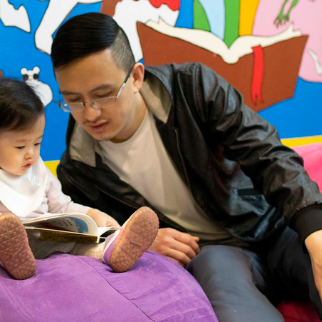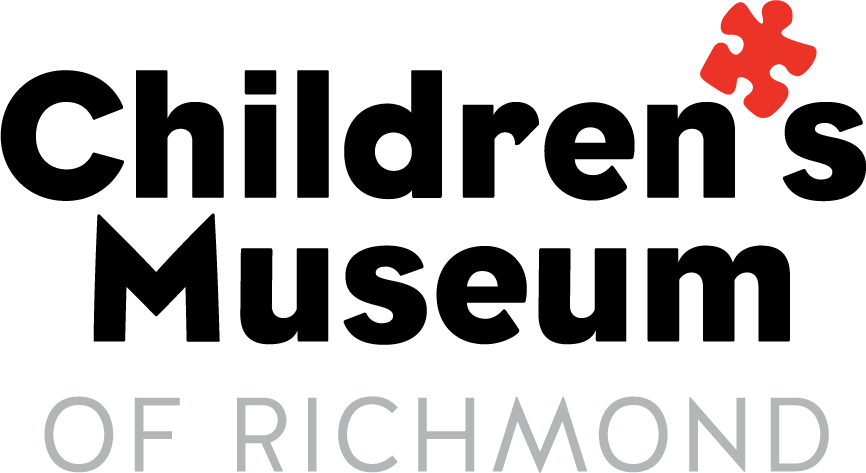Fill the Day with Play: Your Family Playbook for Making Any Time Playtime
Very rarely will you hear a parent or caregiver complain that they simply don’t have enough to do. Juggling the daily tasks and responsibilities of raising a family can often feel like a full-time job — and often piled on top of the tasks and responsibilities of another full-time job. Where can one find the…
Published on February 11, 2020


Very rarely will you hear a parent or caregiver complain that they simply don’t have enough to do. Juggling the daily tasks and responsibilities of raising a family can often feel like a full-time job — and often piled on top of the tasks and responsibilities of another full-time job. Where can one find the time to set aside just for play, in an engaging and unhurried way?
The truth is you have more time than you may realize, and the tremendous benefits of playtime can be found embedded in many of the things you’re already doing in the course of daily life, from getting dressed in the morning to saying goodnight at the end of the day.
Uncovering a better understanding of the many ways that children can benefit from play is a part of the mission of the Children’s Museum, where these benefits are revealed daily — and can often be found at home, too. Through all sorts of play, children have the chance to enhance both physical and mental development in healthy and productive ways. As they say at the Children’s Museum, when children play ahead, they get ahead.
At all four area locations of the Children’s Museum, some of the exhibits most popular with children are those that allow them to engage with what to adults are common, everyday tasks — shopping, banking, even simply ordering a meal at a restaurant. In the environment of the Museum, it’s an example of “pretend play,” allowing children to create their own stories, which studies show can help to support comprehension later when they begin to read.
Likewise, the daily tasks and routines in your own home can provide ample opportunity for play, without even having to pretend! Language skills, creativity, coordination — all of these benefits and more can blossom from making a little more room for playtime in your daily routine.
Below, you’ll find a convenient “family playbook,” featuring several different suggestions for how to turn almost any time into playtime.
Getting Dressed
You may tend to take it for granted most mornings, but for children, learning to get dressed independently is an early opportunity to develop self-confidence and a sense of achievement. Plus, dealing with pant legs, zippers, and buttons helps children develop both fine and gross motor skills. Tip: Break getting dressed into a series of small steps and encourage your child to name each piece of clothing out loud as they put it on.
Cooking Meals
Preparing food with your children is a chance to teach so much, from colors and shapes to textures and tastes. Recent research shows that children who are involved with meal preparation are more likely to try new foods. In addition, having your child mix, stir, or even chop with a safe, plastic knife helps their motor skill development. Tip: Identify simple roles that can make your child feel helpful and involved in the kitchen, without complicating your already hectic meal prep.

Eating Meals
No, we’re not suggesting that you teach your children to play with their food! To the contrary, we recommend taking the time to sit down to a meal together as a family, in order to model manners, communication skills, and healthy eating. Try some fun and easy conversation-starting questions, like “What was the best part of your day today?” or “What do you think you will do tomorrow?” Tip: Set a rule that says your dinner table is a screen-free zone and truly focus on listening to your child. Listening helps to build self-esteem in children by communicating that you value who they are and have respect for what they’re saying.
Outdoor Time
Whether it’s in the backyard or the playground, on a nature trail or just a sidewalk, anytime spent outdoors can be a time to encourage play. Not only does the outdoors offer a whole world of playtime possibilities not found indoors, it’s also a crucial component of children’s health. Along with exercise, our bodies work best when they receive a healthy amount of sunlight. Sunlight helps young bodies produce Vitamin D, assisting in bone development and building a healthy immune system. Tip: Get out there and involve yourself in outdoor play — the same healthy benefits apply to adults, too!
Bath Time
You can view bath time as a chore — or you can think of it as a water-filled science lab for your child! There is so much fun learning to be found with water, especially when you add a small variety of cups and containers, allowing youngsters to explore concepts like volume, space, and measurement, all while getting clean. Tip: Don’t leave children unattended and change out the bath toys occasionally to bring new opportunities for learning.
Reading Time
Simply put, it is never too early to start reading with your child. Academic research confirms that children who are read to regularly ultimately become better readers themselves, while also achieving more success in school. Select stories that highlight a variety of different experiences, or help your child find him- or herself in the books you read together. Tip: Reading isn’t solely about learning. It’s also a bonding experience, so don’t be afraid to snuggle up!

Bedtime
Whether a child or an adult, scientific studies reveal that getting a healthy amount of sleep enhances intelligence, happiness, and productivity. Bedtime is a great time to hear about your child’s day, make plans for the next one, and express thankfulness. Developing a comforting routine at bedtime can help children — and their parents, too — settle down after busy days. Tip: You can reduce the potential for bedtime battles by making a consistent routine and sticking to it.
No matter how busy your day may seem, you can find the time to help your child play and learn, just like they do during a visit to the Children’s Museum.
